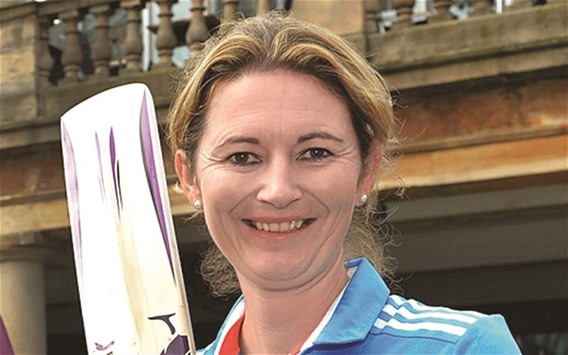Charlotte Edwards was playing cricket for England before the side’s latest recruit, Tash Farrant, was born. Here is an anomaly that may well occur again as Edwards has no immediate plans of calling it a day as England captain, after 10 years at the helm.
Moreover her bosses, which are the new coach, Mark Robinson, once of Sussex CCC, and Clare Connor, the head of women’s cricket at the ECB, are convinced that Edwards remains the woman for the job.
England announced their World T20 squad at Paarl yesterday before a vigorous training session in the heat of a baked countryside.
They play the first of three T20 matches against South Africa today, having just won the 50 over series 2-1. Farrant, 19 years of age and a teammate of Edwards at Kent, has been included for the first time.
Otherwise there are no fresh names—the captain remains the same and there is optimism that Katherine Brunt’s back injury will have recovered in time for the World Cup. There are, however, new brooms in the coaching department.
Another former Sussex (and Surrey) cricketer, Ian Salisbury, has joined Robinson, who says his chief goal is to “increase their awareness of what they can do. The room to grow is huge.”
The prospect of doing this job grew upon Robinson gradually.
Clearly he was getting restless at Hove. He applied for the England men’s job twice. “I was told I was ‘close’ when Peter Moores got the job. But the second time around I heard nothing.” Not being required for interview Robinson thought he might have to go abroad to gain any international experience.
“Then this post grabbed me. And my daughter, Sarah, [who plays cricket for Sussex] was nagging me to go for it. Now I have the prospect of going to World Cups and I’m loving it,” he said.
Connor interviewed and appointed Robinson at a time when the England team was at a low ebb. In terms of profile, the Ashes summer of 2015 was very positive but England’s women lost and they are not used to doing that very often.
“The disappointment of the Ashes led to change and a whole new coaching team” explained Connor. “The way Mark wants them to play is to be adventurous and aggressive. And they have to learn how to handle a new type of pressure. The spotlight is on them as never before and the players are still adjusting to that.”
Both Robinson and Connor are clear that Edwards is still the right person to lead the team.
“You discard experience at your peril,” said Robinson. It is the coach’s call but Connor is happy to add: “She still connects with the younger players and probably now gains the most satisfaction from seeing them develop. She is a treasure and a legend and the best person to lead the side.”
All things being equal it sounds as if she might continue well beyond the World T20 in India.
The most important person in this discussion is, of course, Edwards herself. She admits that last summer throughout the Ashes she experienced “the hardest six weeks of my cricketing life but it makes you stronger. I’m completely energised now.
“I did well out in Australia [in the women’s Big Bash], which was refreshing for me. Now I’m 100% committed. The passion is still there. One bad series doesn’t make you a bad captain or a bad player.”
There are good reasons for Edwards to stay in the game. Beyond the World Cup there is the exciting domestic development of the Women’s Super League.
Connor outlined the T20 competition which will contain six sides, with striking, alliterative, names to be announced on March 1, the nearest English cricket has come to a franchise system.
“In a way we will be like pioneers,” said Connor, a better choice of word than “guinea pigs”.
Each side will contain three overseas players—and all the best are willing to come—as well as three or four England players.
Connor is hopeful that Sky will broadcast the games. The intention is to increase the profile of women’s cricket further as well as bridging the gap between county and international cricket. The indefatigable Edwards will want to be there.

Charlotte Edwards
